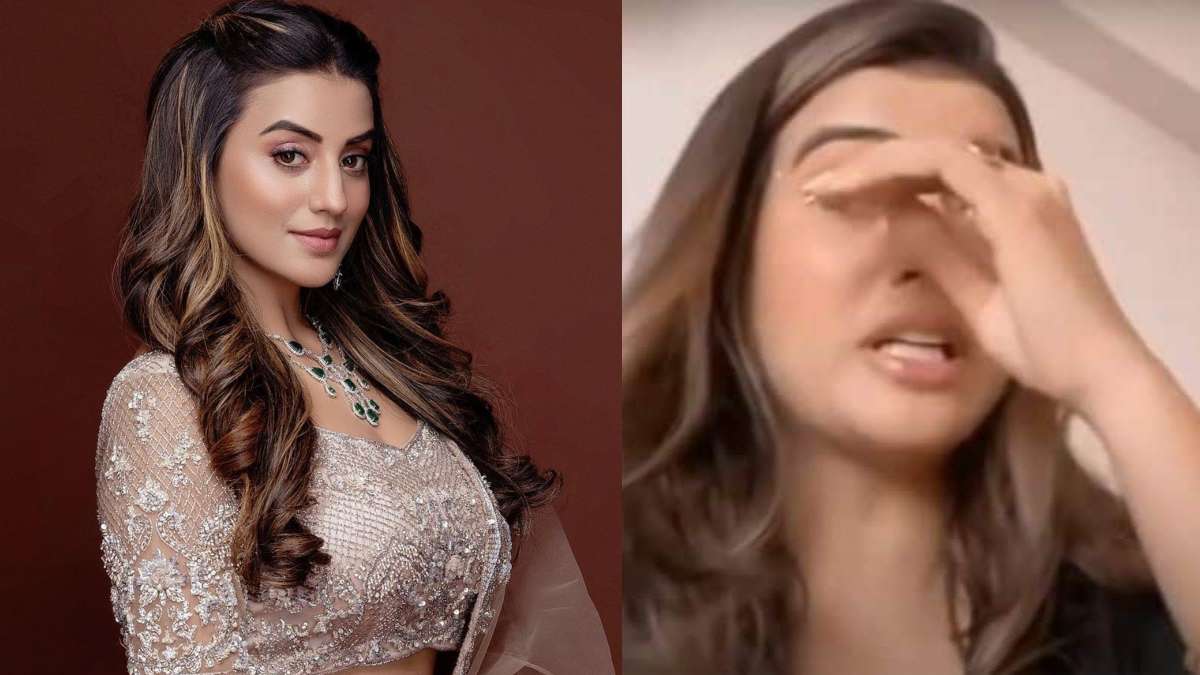Private Video Leaks: Latest News & Updates
Is privacy a relic of the past in the digital age, or are we failing to adequately protect it? The relentless proliferation of leaked private videos, particularly those targeting young women and public figures, is a stark reminder of the vulnerabilities in our digital ecosystem and the urgent need for comprehensive safeguards.
The issue came to a head on a Sunday morning at the Chandigarh University campus, where a massive protest erupted over alleged leaked videos of female students. Students claimed videos of nearly 60 girls taking baths in the hostel were leaked, sparking outrage and raising serious concerns about privacy violations. The university, however, issued a counter-statement, claiming that only one video was circulated. This disparity in information further fueled the controversy, leading to a tense standoff between the students and the authorities. The incident, however, is just the latest in a string of such events that have dominated headlines, exposing the precarious nature of personal privacy in the age of smartphones and social media.
In the wake of the Chandigarh University incident, it's imperative to examine the broader context of these troubling trends, the individuals involved, and the legal and ethical implications. While the specifics of each case vary, the underlying theme remains consistent: the unauthorized capture and dissemination of intimate content, often without the consent of those featured.
- Latest On Movierulz Movie Reviews News Updates Discover Now
- Movierulz Alternatives Where To Watch South Indian Movies
The ease with which personal videos can be recorded, stored, and shared has created a volatile landscape where privacy is constantly under threat. The early 2000s witnessed the rise of mobile phones equipped with video recording capabilities, marking the beginning of this digital phenomenon. What was once a novelty quickly morphed into a devastating trend as individuals, often with malicious intent, started capturing and sharing explicit content without the consent of those involved.
| Subject | Details |
|---|---|
| Name(s) | Oviya Helen, Minahil Malik, Pragya Nagra, Zarnab Shastri, Anjali Arora, Subhashree Sahu, Kareena Kapoor, Shahid Kapoor, Katrina Kaif, Soha Ali Khan, Najiba Faiz, Sahaj Arora, Gurpreet Kaur, Mathira Mohammad, Seema Haider, Sachin |
| Profession/Known For | Influencers, Celebrities, Pakistani TV Host, Tiktoker, Actress, Social Media Star, and others. |
| Incident(s) | Leaked private videos (MMS) circulated online without consent, causing controversy and legal action. |
| Location of Incident(s) | India, Pakistan, and Online Platforms |
| Key Issues Raised | Privacy violations, the spread of explicit content, cyberbullying, and the misuse of technology. |
| Legal Actions | Legal actions initiated against news portals and YouTube channels; Police investigations |
| Public Reaction | Outrage, protests, denial from those involved, division among social media users, and widespread condemnation. |
| Reference Website | NDTV |
The cases of individuals like Oviya Helen, Minahil Malik, Pragya Nagra, and others underscore the vulnerability of public figures and the devastating impact of these breaches. In October 2024, Minahil Malik was the first, as a video surfaced. It was later clarified that the video was fake.
The stories of Anjali Arora, Subhashree Sahu, Kareena Kapoor and Shahid Kapoor's personal video, and the kulhad pizza couple, Sahaj Arora and Gurpreet Kaur, illustrate the varied nature of these incidents. Anjali Arora took legal action against those sharing a morphed video. The leaking of Sahaj and Gurpreet's private video resulted in extensive trolling, with Sahaj later asserting the video's authenticity. Similarly, the alleged leak of an MMS video involving Seema Haider and her husband, Sachin, has become a topic of controversy online, further highlighting the widespread reach and impact of such incidents.
The response from the individuals targeted by these leaks is often one of denial or legal recourse. For instance, Najiba Faiz, a Pakistani TV host, denied the authenticity of a leaked private video clip, attributing it to malicious editing. Anjali Arora, in the case of the morphed video, has taken legal action against the platforms sharing the content. The Chandigarh University, faced with the allegations of leaked videos, denied the claims, stating the allegations of 60 objectionable MMS videos being leaked 'is totally false and baseless'.
The legal and ethical dimensions of leaked private videos are complex. There are issues with consent, the right to privacy, and the potential for defamation and harassment. In many jurisdictions, the unauthorized distribution of intimate images without consent constitutes a crime, often with severe penalties. Furthermore, the ethical implications extend to the platforms that host and facilitate the spread of this content. Social media networks and other online platforms have a responsibility to moderate content and protect their users from exploitation and abuse.
Addressing the issue of leaked MMS videos requires a multi-faceted approach. This encompasses robust legal frameworks, stringent content moderation policies by online platforms, and educational programs to raise awareness about online safety and digital citizenship. It is also essential to address the underlying societal issues that contribute to this phenomenon, such as gender inequality, power dynamics, and the exploitation of vulnerable individuals.
The incidents at Chandigarh University, and other such cases, serve as a wake-up call, underscoring the urgent need for action. Without concerted effort from governments, tech companies, and individuals, the threat to personal privacy in the digital age will only continue to escalate.
The implications of these leaks extend beyond the individuals directly affected, impacting public discourse, trust, and societal values. The spread of such content can lead to cyberbullying, online harassment, and even offline violence. The normalization of non-consensual sharing can erode the boundaries of privacy and contribute to a culture of voyeurism and exploitation.



Detail Author:
- Name : Colin Kemmer PhD
- Username : camryn.rau
- Email : sratke@kessler.com
- Birthdate : 1981-04-11
- Address : 67451 Jordane Stravenue Port Ross, AR 19725-4180
- Phone : (631) 740-7345
- Company : Pfeffer, Hagenes and Stark
- Job : Dot Etcher
- Bio : Voluptatibus similique itaque ea. Alias et quibusdam nobis ut inventore aut non. Ullam quis quia accusamus. Pariatur facere optio omnis sapiente consequatur soluta.
Socials
linkedin:
- url : https://linkedin.com/in/alia9905
- username : alia9905
- bio : Omnis facilis eaque dolores.
- followers : 2412
- following : 212
twitter:
- url : https://twitter.com/kirlin2019
- username : kirlin2019
- bio : Dicta unde et et qui sed incidunt. Alias ut voluptatum temporibus in delectus.
- followers : 5264
- following : 2950
facebook:
- url : https://facebook.com/akirlin
- username : akirlin
- bio : Laborum provident rerum quibusdam sint. Quisquam vero nisi sint.
- followers : 365
- following : 27
tiktok:
- url : https://tiktok.com/@alia.kirlin
- username : alia.kirlin
- bio : Magni voluptas minus qui fugiat optio dignissimos fugit velit.
- followers : 5510
- following : 1833
instagram:
- url : https://instagram.com/alia_xx
- username : alia_xx
- bio : Ut enim vero esse reiciendis. Odit eos sint ipsa at officiis corporis.
- followers : 5369
- following : 682